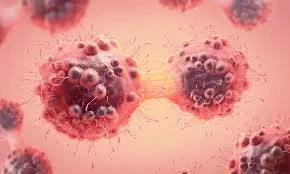An essential component of the treatment for hormone receptor-positive breast cancer is hormonal therapy, sometimes referred to as endocrine therapy. Hormonal therapy primarily attempts to disrupt the function of hormones, such as progesterone and estrogen, that drive the growth of specific types of breast cancer cells. This is in contrast to traditional chemotherapy, which targets rapidly dividing cells across the body. Hormonal therapy can minimize the chance of recurrence and slow or stop the disease's course by interfering with these hormone signals.
Exemestane 25 mg is one drug used frequently in hormone therapy prescriptions. Exemestane is a member of the class of medications known as aromatase inhibitors. These medications function by preventing the enzyme aromatase from converting androgens into estrogen. Exemestane deprives hormone receptor-positive breast cancer cells of the fuel they require to proliferate by reducing the body's estrogen levels.
Exemestane is usually prescribed to patients who take 25 mg orally every day. Individuals receiving hormonal therapy must follow their recommended dosage and timing exactly since this will optimize the treatment's effectiveness. Exemestane, like any medicine, has potential adverse effects, including fatigue, hot flashes, joint discomfort, and an elevated risk of osteoporosis. Patients must engage in open communication with their healthcare professionals regarding any side effects they may encounter. Modifications to the treatment plan can frequently reduce discomfort without compromising its effectiveness.
Buy Exemestane 25 mg is prescribed not just for the treatment of breast cancer but also as a preventive step for postmenopausal women who are at high risk of breast cancer. This demonstrates the efficacy of hormonal therapy in both treating cancer that has already progressed and shielding high-risk patients from developing the disease.
It's crucial to keep in mind that hormonal therapy, particularly exemestane, has transformed the course of treatment for hormone receptor-positive breast cancer, but it is not without drawbacks. Over time, some tumors may become resistant to hormone therapy, requiring the use of alternate treatment modalities. Furthermore, not everyone will benefit from hormonal therapy, especially if they have hormone receptor-negative breast cancer.
In conclusion, a holistic approach to treating hormone receptor-positive breast cancer must include hormonal therapy, which is demonstrated by drugs such as exemestane. Hormonal therapy provides patients with an effective weapon in the battle against cancer by focusing on the underlying hormonal causes of the illness. To get the best possible outcomes for their cancer journey, patients must collaborate closely with their healthcare providers to assess the effectiveness of therapy and manage any potential side effects.



